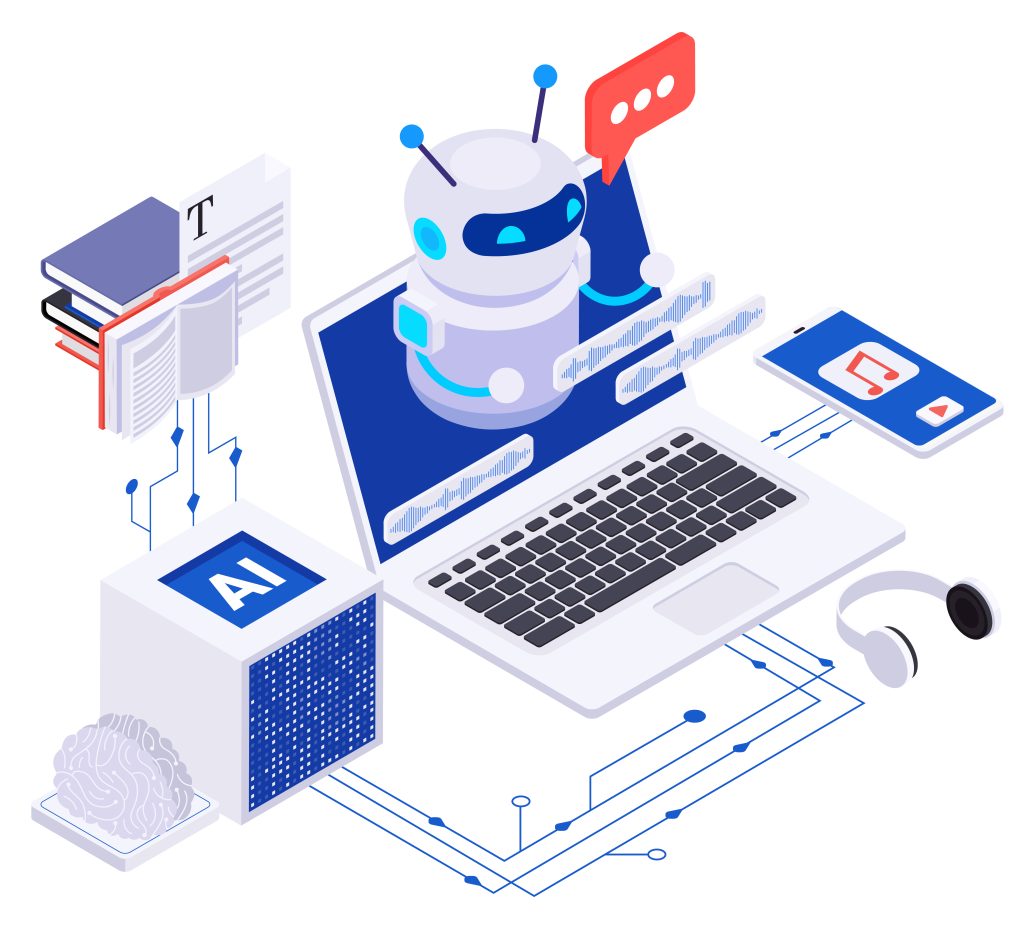AI’s influence extends beyond efficiency. While it excels at automating tasks and suggesting data-driven improvements, it can’t replace the human touch in content creation. AI tools are most effective as collaborators, helping writers overcome creative roadblocks. They spark new ideas by generating content outlines, suggesting different angles on a topic, or even writing drafts that creators can further develop.
This frees up creators to focus on the aspects that require human expertise, such as crafting compelling narratives, injecting unique voice and style, and ensuring the content resonates with the target audience on a deeper level. The human-AI partnership ultimately leads to a more efficient and effective content creation process.
What new skills are required for content strategists due to AI integration?
With AI taking over routine tasks, content strategists must now sharpen their skills in data analysis, AI technology management, and strategic planning. Being adept at interpreting data enables them to extract actionable insights while understanding AI tools allows for better workflow coordination.
Additionally, strategic planning becomes crucial as it now plays a larger role in aligning content with business goals. But AI also presents exciting opportunities for content strategists. The ability to leverage AI for content creation, personalization, and performance optimization will be a key differentiator.
Mastering these skills will allow content strategists to become true content orchestrators, overseeing the entire content lifecycle and maximizing its impact.
How does AI workflow automation impact the roles of content strategists in tech companies?

AI workflow automation integrates into the routines of content strategists by reshaping their roles, moving them from purely creative tasks towards more managerial and analytical responsibilities. This shift enables a focus on strategy, fine-tuning content for better audience engagement, and optimizing the content creation process for efficiency and scale.
Additionally, AI can empower content strategists by providing data-driven insights into audience preferences and content performance. By analyzing user behavior and engagement metrics, AI can help strategists identify content gaps, optimize existing content, and personalize content delivery for different audience segments.
This newfound ability to leverage data can lead to the creation of more targeted and effective content that resonates with the audience and drives business goals.
What strategies can content strategists use to ensure AI and human collaboration?
To ensure successful collaboration between AI and humans, content strategists should establish clear guidelines on AI’s role in the workflow, focusing on tasks that benefit most from automation. Encouraging team members to view AI as a tool rather than a replacement fosters a mindset of innovation. Regular training sessions on new AI features and functionalities also keep the team updated and efficient.
Furthermore, establishing a feedback loop between AI and human creators is crucial. Human creators should review and edit AI-generated content to ensure accuracy, maintain brand voice, and evoke emotional resonance.
This feedback can then train the AI and enhance its capabilities over time, fostering a symbiotic relationship between human expertise and machine learning.
How does AI influence the roles of content strategists in tech companies?
AI is expected to further redefine the roles of content strategists by emphasizing strategic oversight and creative direction over manual content production. Strategists will increasingly rely on AI for operational tasks, allowing them to concentrate on developing comprehensive content strategies, engaging in deeper audience research, and pioneering new content formats and distribution channels.
AI won’t replace the human touch in content strategy. Instead, it will become a powerful collaborator. Strategists can leverage AI to test content variations, personalize experiences, and measure content effectiveness in real-time.
This frees them to focus on the “why” behind the content – understanding the audience’s emotional triggers and crafting compelling narratives that resonate on a deeper level. AI-powered content strategy becomes a data-driven dance, with humans leading the creative steps while AI provides insights and rhythm.
- The Agentic Startup Manifesto - June 8, 2025
- Remote Hiring in 2025 - April 5, 2025
- Burnout in Remote Teams: How It’s Draining Your Profits - January 27, 2025
